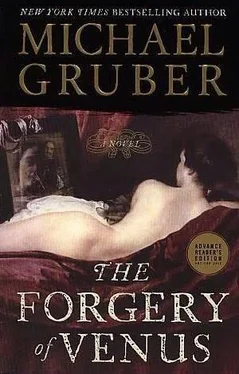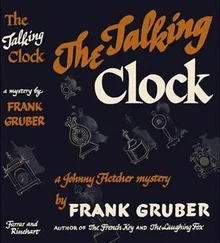Setting the stage, interesting phrase, that, like our life is a drama, act one, act two, act three, curtains. So let’s start with me at twenty-one, just out of college. Did you ever wonder how I graduated? How could I be an art major and flunk three art courses? This my advisor asked me. Well, sir, the reproductions make me sick, I can’t look at them and I can’t write about painting, the words seem like jokes. It took me three years to learn how to fake it, and if it wasn’t for Slotsky I would’ve failed the other courses too. A genius at doing art papers, Slotsky; if they hung twelve-hundred-word art papers in museums, Slotsky would be one of the great artists of our generation.
I was home in Oyster Bay, home sweet home, and all I could think of was how to get out of there before I killed myself or him. My dad. I don’t think I ever mentioned this to you, but Dad had a little problem.
He was chasing Kendra the maid again, although she’s practically deformed. How could he? Maybe he stopped seeing them as they are. It was worse before Mother started hiring the maids, not that she cares anymore, but we kept losing maids, and of course she needed a maid by then, she could hardly function by herself.
I remember you invited me out to your aunt’s place one summer, and you might have wondered why I never reciprocated. Well, Dad’s problem is one reason; maybe he would’ve behaved himself with guests-always a sense of decorum in public-but I didn’t want to risk it. Another reason: there are nude portraits of my mother on every fucking wall in the house. Interesting progression though, from Pre-Raphaelite sylph (my favorite, if that’s the word, she’s maybe a couple years older than I am now: naked, hair shoulder-length, leaning against a wall, looking out at all of us-am I not beautiful?), to classical Venus, to the Titian version, finally to Rubens, and then he stopped painting her, or maybe she stopped posing. I wonder what she tipped the scales at that summer, four or even five hundred, I couldn’t look anymore, but she got even with him in a sort of Dorian Gray self-destructo way.
Anyway, you have to imagine me skulking around that huge, echoing house, wishing I had the balls to join a cult, the kind where you get a tattoo on your forehead, and other stupid thoughts, and decided I was never going to play into his hands, I was never going to wreck myself to get even like she did. Why didn’t she leave him? I never figured that out. It’s not like she didn’t have any money.
Her dad had plenty, made it in switching equipment for the railroads. All that complicated electromechanical machinery that relayed current to the right switches in railyards and out along the line. There used to be something called a Petrie junction that got some use in telephone exchanges too. Westinghouse bought him out right after the war for something like thirty million, which was serious money in those days. He died when I was seven or so, but I knew my grandmother pretty well.
Grandma Petrie was a character, a beautiful, stupid woman, always concerned about whether her hair was right. She lived with us for twelve years after the old man died, becoming dimmer by the year and increasingly concerned with the Church and her place in the next world. A little Dickensian drama here on the shore of the Sound, or one of those other guys, a lavender-scented breath from the previous century. Dad, of course, smarming around, phony as hell about all the religious horseshit, entertaining fat monsignors right and left, making sure we were all raised in the Church, Catholic schools and all, Charlotte to Sacred Heart, of course, and me to Columbia only because the old man went there, instead of the decent art school I should’ve gone to. Grandma didn’t much like me. Charlotte was her favorite. They used to sit for hours, saying the rosary or looking at her thick, leather-bound photograph albums. I would ask Charlie how she could stand it and she’d say it was charity, a lonely old woman needing companionship, and after a while I learned not to tease her about it, and I took it as natural that my sister could be two completely different people, the quiet little nun-in-training and the tomboy in shorts and a T-shirt, palling around with me down on the beach, in our boats, always covered in sand, tracking it through the house.
When she died, I mean Grandma, it turned out that all the smarm was for naught. She left the bulk of the estate to the Church, with life grants to me (small), Charlotte (larger), and Mother. Mother got the house. In the will she said she expected Charlotte to pursue her vocation and enter religious life.
That’s a scene etched into my brain, the bunch of us sitting around listening to the lawyer read it out, all of us in black, like it was 1880, and when that part got read I rolled my eyes and nudged Charlotte, who was sitting next to me, expecting her to give me the elbow back, but she didn’t, she just turned and looked at me, and there was someone else looking out from behind her eyes and it fucking froze my blood.
Why he never left her, I guess, why he never had a real French-type mistress in a Manhattan apartment like he must’ve wanted. I remember looking at him when he realized he wasn’t going to get a dime, that he was stuck with us more or less forever; he went white, like he’d been punched in the gut. Funny, because his income was pretty high then; he was at the peak of his fame as a second-rate Rockwell, he could’ve split then, but he didn’t, he just kept grabbing the maids and the locals, waitresses and cashiers.
But he loved her once; you couldn’t paint a woman that way unless you did, or I couldn’t anyway, and there are photographs, God, are there photographs! They met in the last summer before the war, they were both at the Art Students’ League, he was an instructor, she was a student for her bohemian summer before she got serious and started settling down with a good Catholic boy, and I think he just blew her away with sheer talent. The Petries must’ve loved it when she dragged him home that summer, a heathen with no money, no family. But Mother was a hardhead when she wanted to be, and she was Daddy’s girl, the only child, a bit of a disgrace there in a fine Catholic family, only one kid, what’s wrong with them? And he converted, naturally, more Catholic than the Pope after a while; he could be charming too, charmed the old guy, but never Grandma, as it turned out. I bet she was praying that a Jap bomb would solve her problem, but he came back and they got married and he got famous, and then came Charlotte and then a set of miscarriages and a little girl who died of polio at age two, and then me, and that was it.
There it is, the sad story, for the record, this record, or at least what I’ve been able to gather. Not that anyone actually ever sat down and told me the truth. I get versions. Who to believe? More to the point, how to avoid it?
I finally settled on a plan to go to Europe -the geographic cure, always attractive at that age. I didn’t have enough money of my own and I thought he’d never give me any of his, although he spent enough of it on himself. I guess he assumed that I’d stay here, he had the stupid idea that we were going to be a father-and-son thing like the Wyeths or the Bassanos, a little atelier here in the cultural desert of Long Island. He was talking about how I could do the lesser portrait commissions, or maybe the liquor ads. But as it turned out he sprang for the whole thing. That’s what was so maddening about the bastard, you thought he never considered another human being besides himself, and then he goes and does something like that; he said, take as long as you want, you’re only young once, and remember to use condoms.
Of course I’d asked my mother for it first, and she’d said, ask your father. I couldn’t believe it, standing there in her room, trying not to gag from the smell of the disinfectant and her rotting feet. Her mouth drawn down from the stroke, her eyes almost invisible in the pads of flesh: ask your father.
Читать дальше












